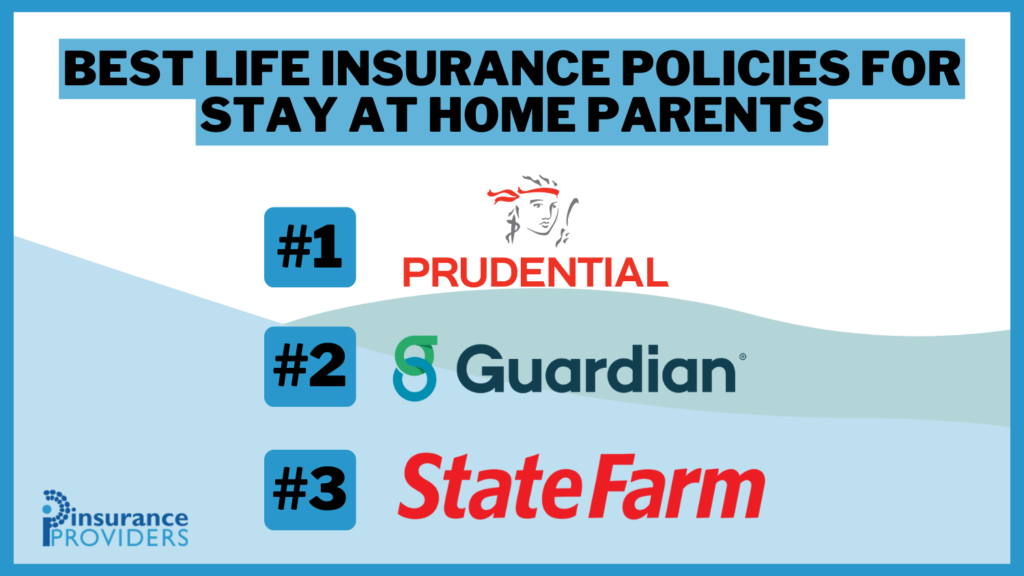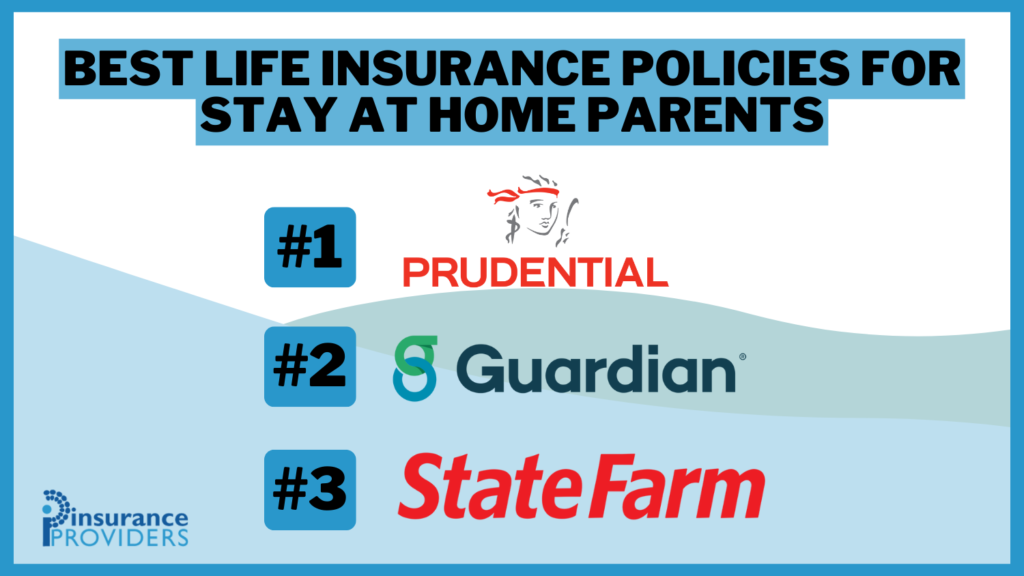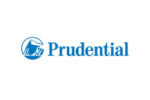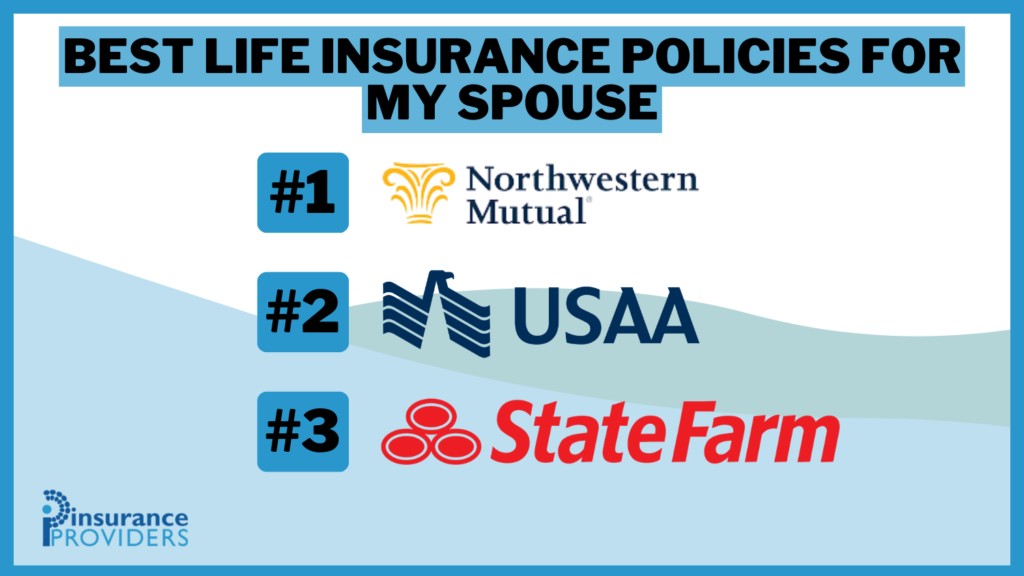Best Life Insurance Policies for Stay At Home Parents in 2026 (Top 10 Companies)
The companies with best life insurance policies for stay-at-home parents are Prudential, Guardian Life, and State Farm. Uncover the financial protection that life insurance provides for stay-at-home parents. Delve into the optimal solutions guaranteeing a secure future.
Read more Secured with SHA-256 Encryption





Table of Contents
Table of Contents


Licensed Insurance Agent
Daniel Walker graduated with a BS in Administrative Management in 2005 and has run his family’s insurance agency, FCI Agency, for over 15 years (BBB A+). He is licensed as an insurance agent to write property and casualty insurance, including home, life, auto, umbrella, and dwelling fire insurance. He’s also been featured on sites like Reviews.com and Safeco. To ensure our content is accura...
Daniel Walker


Licensed Insurance Agent
Justin Wright has been a licensed insurance broker for over 9 years. After graduating from Southeastern Seminary with a Masters in Philosophy, Justin started his career as a professor, teaching Philosophy and Ethics. Later, Justin obtained both his Property & Casualty license and his Life and Health license and began working for State Farm and Allstate. In 2020, Justin began working as an i...
Justin Wright
Updated March 2024

Company Facts
Average Monthly Rate For Good Drivers
A.M. Best Rating
Complaint Level
Pros & Cons


Company Facts
Average Monthly Rate For Good Drivers
A.M. Best Rating
Complaint Level
Pros & Cons

Discover the best life insurance policies for stay-at-home parents with top providers like Prudential, Guardian Life, and State Farm. Prudential leads with competitive rates, comprehensive coverage options, and tailored benefits. This guide explores life insurance’s importance, policy types, and key factors for decision-making.
As a stay-at-home parent, it’s important to understand the significance of having a life insurance policy. While many might think that life insurance is only necessary for working parents, stay-at-home parents provide valuable services and support that would be expensive to replace should the unthinkable happen.

Our Top 10 Best Companies: Best Life Insurance Policies For Stay At Home Parents
| Company | Rank | See Pros/Cons | Family Discount | Caregiver Support Discount | Best For |
|---|---|---|---|---|---|
| #1 | Prudential | Up to 10% | Up to 12% | Family Protection | |
| #2 | Guardian Life | Up to 15% | Up to 18% | Guardian Savings | |
| #3 | State Farm | Up to 12% | Up to 15% | Care Coverage | |
| #4 | Northwestern Mutual | Up to 10% | Up to 12% | Holistic Planning | |
 | #5 | New York Life | Up to 12% | Up to 15% | Financial Security |
| #6 | MassMutual | Up to 10% | Up to 12% | Income Protection | |
| #7 | Lincoln Financial Group | Up to 12% | Up to 15% | Flexible Options | |
| #8 | Transamerica | Up to 8% | Up to 10% | Care Ease | |
 | #9 | Pacific Life | Up to 10% | Up to 12% | Lifetime Coverage |
| #10 | Mutual of Omaha | Up to 8% | Up to 10% | Simplified Coverage |
In this article, we will explore the reasons why life insurance is crucial for stay-at-home parents, the different types of life insurance policies available, the top policies for stay-at-home parents, factors to consider when choosing a policy, and how to apply for one.
#1 – Prudential: Family Protector
Prudential stands out as a top choice for stay-at-home parents, offering comprehensive family protection with its Family Protector policy.Dani Best Licensed Insurance Producer
Pros
- Family protection: Prudential offers a family discount of up to 10%, making it an attractive option for those seeking comprehensive protection for their loved ones.
- Caregiver support discount: With a caregiver support discount of up to 12%, Prudential stands out in providing financial assistance for stay-at-home parents who act as caregivers.
- Holistic planning: Prudential is ranked #1 for its holistic planning approach, ensuring that the life insurance policies cater to various aspects of a family’s financial well-being.
Cons
- Limited care ease: While Prudential offers solid family protection, its Care Ease discount of up to 10% may be comparatively lower than some competitors.
- Potential cost: The premium costs with Prudential might be on the higher side compared to other companies, potentially making it less affordable for some families.
Free Life Insurance Comparison
Compare Quotes From Top Companies and Save
Secured with SHA-256 Encryption
#2 – Guardian Life: Savings Champion
Pros
- Guardian savings: Guardian Life offers an impressive family discount of up to 15%, making it a top choice for those looking to maximize savings on life insurance.
- Extensive caregiver support: With a caregiver support discount of up to 18%, Guardian Life excels in providing substantial financial support to stay-at-home parents.
- Flexible options: Guardian Life stands out with flexible options, allowing policyholders to tailor their coverage according to their specific needs.
Cons
- Higher premiums: The premium costs with Guardian Life may be relatively higher, potentially impacting the affordability for some families.
- Slightly lower care coverage: While Guardian Life offers extensive savings, its care coverage discount of up to 15% might be slightly lower compared to other competitors.
#3 – State Farm: Care Coverage Leader
Pros
- Care coverage: State Farm is recognized for its robust care coverage discount of up to 15%, making it a suitable choice for those emphasizing care-related benefits.
- Family-friendly discounts: With a family discount of up to 12%, State Farm provides a well-rounded approach to addressing the financial needs of families.
- Lifetime coverage: State Farm offers comprehensive lifetime coverage, ensuring long-term financial security for policyholders.
Cons
- Limited guardian savings: While State Farm excels in care coverage, its family discount of up to 12% might be slightly lower compared to competitors emphasizing savings.
- Less holistic planning: State Farm may be perceived as less focused on holistic financial planning compared to some other top-ranking companies.
#4 – Northwestern Mutual: Holistic Financial Planner
Pros
- Holistic planning: Northwestern Mutual is recognized for its holistic planning approach, offering a well-rounded perspective on financial security.
- Financial security: With a family discount of up to 10%, Northwestern Mutual provides robust financial security options for stay-at-home parents.
- Income protection: Northwestern Mutual emphasizes income protection, ensuring that families have a safety net in case of unexpected financial challenges.
Cons
- Slightly lower guardian savings: While Northwestern Mutual offers holistic planning, its family discount of up to 10% may be slightly lower than competitors focusing on savings.
- Potential complexity: Some individuals may find Northwestern Mutual’s policies to be more complex, potentially making it less accessible for those seeking straightforward coverage.
Free Life Insurance Comparison
Compare Quotes From Top Companies and Save
Secured with SHA-256 Encryption
#5 – New York Life: Security and Flexibility
Pros
- Financial security: New York Life prioritizes financial security, providing a family discount of up to 12% for stay-at-home parents.
- Flexible options: With a caregiver support discount of up to 15%, New York Life offers flexible options for those acting as caregivers.
- Lifetime coverage: New York Life emphasizes lifetime coverage, ensuring long-term protection for policyholders and their families.
Cons
- Slightly lower guardian savings: While New York Life provides financial security, its family discount of up to 12% might be slightly lower compared to competitors with higher savings emphasis.
- Potentially higher premiums: The premium costs with New York Life may be on the higher side, potentially impacting affordability for some families.
#6 – MassMutual: Income Protector
Pros
- Income protection: MassMutual excels in income protection, offering a family discount of up to 10% for stay-at-home parents.
- Flexible options: With a caregiver support discount of up to 12%, MassMutual provides flexibility in addressing the financial needs of caregivers.
- Holistic planning: MassMutual is known for its holistic planning approach, ensuring comprehensive coverage for various aspects of a family’s financial well-being.
Cons
- Slightly lower guardian savings: While MassMutual offers holistic planning, its family discount of up to 10% may be slightly lower compared to competitors focusing more on savings.
- Limited care ease: MassMutual’s Care Ease discount of up to 10% might be comparatively lower than some competitors, limiting ease of access to care-related benefits.
#7 – Lincoln Financial Group: Flexibility Expert
Pros
- Flexible options: Lincoln Financial Group stands out with flexible options, allowing policyholders to customize their coverage based on specific needs.
- Comprehensive care coverage: With a care coverage discount of up to 15%, Lincoln Financial Group excels in providing comprehensive coverage for caregivers.
- Family-friendly discounts: Lincoln Financial Group offers a family discount of up to 12%, catering to the overall financial needs of families.
Cons
- Slightly lower guardian savings: While Lincoln Financial Group provides flexible options, its family discount of up to 12% might be slightly lower compared to competitors with a higher savings emphasis.
- Potential cost: The premium costs with Lincoln Financial Group may be on the higher side, potentially impacting affordability for some families.
Free Life Insurance Comparison
Compare Quotes From Top Companies and Save
Secured with SHA-256 Encryption
#8 – Transamerica: Care Ease Provider
Pros
- Care ease: Transamerica focuses on care ease, offering a family discount of up to 8% for stay-at-home parents.
- Flexible options: With a caregiver support discount of up to 10%, Transamerica provides flexibility in addressing the financial needs of caregivers.
- Lifetime coverage: Transamerica emphasizes lifetime coverage, ensuring long-term protection for policyholders and their families.
Cons
- Slightly lower guardian savings: While Transamerica provides care ease, its family discount of up to 8% may be slightly lower compared to competitors with a higher savings emphasis.
- Limited holistic planning: Transamerica’s approach may be perceived as less holistic compared to some other top-ranking companies, potentially limiting overall financial planning options.
#9 – Pacific Life: Lifetime Coverage Leader
Pros
- Lifetime coverage: Pacific Life prioritizes lifetime coverage, offering a family discount of up to 10% for stay-at-home parents.
- Flexible options: With a caregiver support discount of up to 12%, Pacific Life provides flexibility in addressing the financial needs of caregivers.
- Comprehensive care coverage: Pacific Life excels in comprehensive care coverage, ensuring that policyholders have access to various caregiver-related benefits.
Cons
- Slightly lower guardian savings: While Pacific Life provides lifetime coverage, its family discount of up to 10% may be slightly lower compared to competitors with higher savings emphasis.
- Potential complexity: Some individuals may find Pacific Life’s policies to be more complex, potentially making it less accessible for those seeking straightforward coverage.
#10 – Mutual of Omaha: Simplicity Advocate
Pros
- Simplified coverage: Mutual of Omaha stands out with simplified coverage options, making it an accessible choice for those seeking straightforward life insurance.
- Flexible options: With a caregiver support discount of up to 10%, Mutual of Omaha provides flexibility in addressing the financial needs of caregivers.
- Income protection: Mutual of Omaha emphasizes income protection, offering a family discount of up to 8% for stay-at-home parents.
Cons
- Limited guardian savings: While Mutual of Omaha provides simplified coverage, its family discount of up to 8% may be slightly lower compared to competitors with higher savings emphasis.
- Limited holistic planning: Mutual of Omaha’s approach may be perceived as less holistic compared to some other top-ranking companies, potentially limiting overall financial planning options.
Free Life Insurance Comparison
Compare Quotes From Top Companies and Save
Secured with SHA-256 Encryption
How much is life insurance for stay-at-home parents?
Life insurance is essential for family security, offering peace of mind. Stay-at-home parents, vital to household well-being, should make informed decisions by comparing coverage rates. Rates are usually categorized into minimum and full coverage, providing flexibility in choosing plans tailored to individual needs and budgets.
Average Monthly Life Insurance Rates for Stay At Home Parents
| Insurance Company | Minimum Coverage | Full Coverage |
|---|---|---|
| Prudential | $45 | $95 |
| Guardian Life | $50 | $105 |
| State Farm | $43 | $90 |
| Northwestern Mutual | $48 | $100 |
| New York Life | $48 | $98 |
| MassMutual | $45 | $95 |
| Lincoln Financial Group | $50 | $105 |
| Transamerica | $43 | $90 |
| Pacific Life | $48 | $100 |
| Mutual of Omaha | $48 | $98 |
When it comes to minimum coverage, which represents the basic protection provided by a policy, insurance seekers should consider the affordability and adequacy of the offered plans. The table provides a snapshot of the minimum coverage rates from various insurance companies for stay-at-home parents.
Prudential, State Farm, and Transamerica offer the lowest minimum coverage rates, with monthly premiums as low as $43 to $45. On the other hand, full coverage encapsulates a more comprehensive protection plan, ensuring financial stability for the beneficiaries in various circumstances.
Guardian Life, Lincoln Financial Group, and Transamerica emerge as the top contenders for full coverage, with monthly rates ranging from $105 to $90. These rates not only reflect the extent of protection but also factor in the additional benefits and features that come with a comprehensive life insurance policy.
Understanding the Importance of Life Insurance for Stay At Home Parents
Stay-at-home parents play a vital role in the family dynamic. Although they might not bring in an income, their contributions are invaluable. They often act as the primary caregiver, managing the household, taking care of children, and providing emotional support. While their work may not have a price tag, losing a stay-at-home parent can create financial hardships and emotional distress.
The financial implications of losing a stay-at-home parent can be staggering. In addition to the emotional strain, the surviving parent may need to find alternate childcare options, housekeeping services, or even take time off work to handle the increased responsibilities. Unfortunately, these costs can quickly add up. That’s where life insurance comes in.
The Role of a Stay At Home Parent
Stay-at-home parents often take on various responsibilities, such as managing household finances, cooking, cleaning, and caring for children. They are the backbone of the family, providing stability and support. While their work may not typically be regarded as a “job,” the services they provide have economic value.
Without a stay-at-home parent, families would need to hire outside help to perform these tasks. This can be expensive and might not even compare to the personal touch and attention that a stay-at-home parent offers.
Imagine a stay-at-home parent who not only manages the household but also takes the time to carefully plan and budget the family’s finances. They research and find the best deals on groceries, utilities, and other expenses, ensuring that the family’s money is stretched as far as possible.
Their expertise in managing finances saves the family a significant amount of money each month, which can be put towards savings, education, or other important goals.
Additionally, a stay-at-home parent often takes on the role of a chef, preparing nutritious meals for the family. They carefully plan meals, considering everyone’s dietary needs and preferences. Their culinary skills not only save the family money on dining out but also promote healthy eating habits, contributing to the overall well-being of the family.
Financial Implications of Losing a Stay At Home Parent
If a stay-at-home parent passes away unexpectedly, the surviving parent may face financial challenges. The costs of replacing the services provided by the stay-at-home parent can quickly accumulate. From childcare expenses to hiring a housekeeper or even paying for therapy for the children, the financial burden can become overwhelming.
Consider the scenario where a stay-at-home parent takes care of the children while the other parent works. The stay-at-home parent provides constant love, care, and attention to the children, ensuring their well-being and development. If this parent were to pass away, the surviving parent would need to find suitable childcare options.
This could include daycare centers, nannies, or babysitters, all of which come with their own costs. The financial strain of paying for these services on top of the regular household expenses can be overwhelming.
Furthermore, a stay-at-home parent often takes care of household chores such as cleaning, laundry, and maintenance. These tasks may seem mundane, but they are essential for maintaining a comfortable and functional home. If the surviving parent needs to hire housekeeping services, the expenses can quickly add up.
Additionally, the quality of service may not be the same as what the stay-at-home parent provided, leading to additional frustrations and adjustments for the family.
Life insurance can provide the necessary financial support in such difficult times. With a life insurance policy, the surviving parent can receive a payout that can help cover these expenses and maintain financial stability. This financial cushion allows the surviving parent to focus on grieving and supporting the children without the added stress of financial worries.
Types of Life Insurance Policies
Before diving into the top life insurance policies for stay-at-home parents, it’s important to understand the different types of life insurance available. Each type has its own features and benefits, so it’s crucial to choose the one that aligns with your specific needs.
Life insurance is a vital financial tool that provides protection and peace of mind to individuals and their loved ones. It ensures that in the event of the policyholder’s death, their beneficiaries will receive a lump sum payment, known as the death benefit, which can be used to cover various expenses.
Read more: Best Life Insurance Policies for Parents
Term Life Insurance
Term life insurance provides coverage for a specific period, typically 10, 20, or 30 years. It is often more affordable compared to other types of life insurance. Term life insurance can be an excellent option for stay-at-home parents who want coverage during the years when their children are dependent on their care. (For more information, read our “Best Term Life Insurance Companies“).
During the term, the policyholder pays regular premiums, and if they pass away, the insurer pays out the death benefit to the designated beneficiaries. If the policyholder outlives the term, the coverage expires, and there is no payout.
This type of policy is ideal for those who want temporary coverage to protect their loved ones during a specific period, such as when their children are young and financially dependent.
Whole Life Insurance
Whole life insurance provides coverage for the entire lifetime of the policyholder. It comes with a cash value component that grows over time and can be used as an investment or for borrowing against. While whole life insurance offers a more permanent solution, it is generally more expensive than term life insurance.
By opting for a whole life insurance policy, stay-at-home parents can have coverage that extends throughout their entire life, ensuring financial protection for their loved ones whenever they pass away. The cash value component of whole life insurance grows over time, providing a valuable asset that can be accessed during the policyholder’s lifetime.
Universal Life Insurance
Universal life insurance provides lifetime coverage with the added benefit of flexibility. It allows policyholders to adjust their premium payments and death benefits as needed. This type of policy combines life insurance with a savings component, giving stay-at-home parents the opportunity to build cash value while still having life insurance protection.
Universal life insurance provides more flexibility in terms of premium payments and coverage amounts. This allows stay-at-home parents to adapt their policy to fit their changing needs and financial situation over time. The cash value component of universal life insurance grows based on the performance of the underlying investments, providing potential for additional wealth accumulation.
Choosing the right life insurance policy is a crucial decision for stay-at-home parents. It’s important to evaluate your financial goals, budget, and long-term needs before making a choice. Consulting with a licensed insurance professional can help you navigate the options and find the policy that best suits your unique circumstances.
Free Life Insurance Comparison
Compare Quotes From Top Companies and Save
Secured with SHA-256 Encryption
Top Life Insurance Policies for Stay At Home Parents
Now that we understand the importance of life insurance for stay-at-home parents and the different types available, let’s explore the top policies that cater specifically to their needs.
Life insurance is a crucial financial tool that provides financial protection to families in the event of the insured’s death. While stay-at-home parents may not have a traditional income, their contributions to the family are invaluable.
From managing household tasks to caring for children, stay-at-home parents play a vital role in the family’s well-being. Therefore, it’s essential for them to have life insurance coverage that reflects their unique circumstances.
Policy Details and Benefits
When choosing a life insurance policy, it’s crucial to review the policy details and benefits. Look for policies that provide ample coverage and offer benefits tailored to the unique requirements of stay-at-home parents.
One important benefit to consider is childcare expense reimbursement. Stay-at-home parents often take on the responsibility of caring for children full-time, and in the unfortunate event of their passing, it’s crucial to ensure that their children are well taken care of.
A life insurance policy that provides childcare expense reimbursement can help cover the costs of daycare or hiring a nanny, ensuring that the children’s needs are met.
In addition to childcare expense reimbursement, some life insurance policies also offer housekeeping assistance. This benefit can be a tremendous help to the surviving spouse, who may need assistance with household chores and managing the household in the absence of the stay-at-home parent.
Furthermore, certain life insurance policies for stay-at-home parents may provide funds for educational expenses. These policies recognize the importance of education and aim to support the children’s future by ensuring that they have the necessary funds to pursue their educational goals.
Consider policies that offer additional riders or options to enhance coverage, such as critical illness or disability riders. These riders can provide additional financial support in case of illness or injury, offering an extra layer of protection for stay-at-home parents.
Cost Comparison
Cost is a significant factor when selecting a life insurance policy. It’s essential to compare quotes from multiple insurers to find the best coverage at an affordable price.
When comparing costs, consider the premium amounts and payment frequency. Some insurers offer flexible payment options, allowing stay-at-home parents to choose a payment schedule that aligns with their financial situation.
However, it’s important to note that while cost is important, it shouldn’t be the sole driving factor in choosing a life insurance policy. It’s crucial to identify a policy that offers a balance between cost and comprehensive coverage, ensuring adequate protection for your family.
Take the time to carefully review the policy details, benefits, and riders offered by different insurers. Consider your family’s specific needs and financial goals when making a decision.
Remember, life insurance is an investment in your family’s future. It provides peace of mind, knowing that your loved ones will be financially secure even in your absence. So, take the necessary steps to protect your family’s well-being by choosing the right life insurance policy for stay-at-home parents.
Factors to Consider When Choosing a Life Insurance Policy
Choosing the right life insurance policy for stay-at-home parents requires careful consideration of several factors. Let’s explore some key elements to keep in mind:
Financial Stability and Ratings of the Insurance Company
Before finalizing a policy, research the financial stability and ratings of the insurance company offering the policy. Ensure that the insurer has a good reputation for prompt claim settlements and has the financial means to fulfill future obligations. (For more information, read our “Understanding Life Insurance Settlements: What is it and how does it work?“).
Consult independent rating agencies, such as A.M. Best or Standard & Poor’s, to gather relevant information about the insurer’s financial strength and credibility.
Coverage Amount
Determining the coverage amount is crucial when choosing a life insurance policy. Consider your family’s financial needs, such as mortgage payments, outstanding debts, future education expenses, and emergency funds. Adequate coverage should ensure that your family can maintain their current lifestyle even in your absence.
Remember that the coverage amount should be sufficient to cover more than just immediate expenses. It should also account for future financial goals, such as college tuition or retirement savings.
Policy Terms and Conditions
Carefully review the terms and conditions of the life insurance policy. Pay attention to any exclusions or limitations that might affect the benefits payout. Understand the renewal options, conversion opportunities, and any potential changes to the policy in the future.
Take the time to go through the policy documents thoroughly or consult with a trusted insurance professional to ensure you’re fully aware of the commitment you’re making.
How to Apply for a Life Insurance Policy
If you’ve decided to secure a life insurance policy as a stay-at-home parent, here’s a general overview of the application process:
Steps to Apply
Start by researching and obtaining multiple quotes from different insurance providers. Compare the features, benefits, and costs of each policy. Once you’ve identified the most suitable option, contact the insurance company to begin the application process.
Typically, the application process involves filling out a form with personal information and details about your health. You may also have to undergo a medical examination or provide medical records to assess your insurability. (For more information, read our “What personal information is available to life insurance companies?“).
Required Documents and Health Check-ups
During the application process, be prepared to provide various documents, such as identification proof, proof of income, and medical records. In some cases, you may be required to undergo a health check-up, including measurements like blood pressure and blood tests.
Make sure to gather all the necessary documents beforehand and be prepared for any medical tests that may be required.
Securing the best life insurance policy as a stay-at-home parent is an essential step towards safeguarding your loved ones’ financial future. By choosing the right coverage, considering factors specific to stay-at-home parents, and understanding the application process, you can make an informed decision that provides peace of mind for you and your family.
Free Life Insurance Comparison
Compare Quotes From Top Companies and Save
Secured with SHA-256 Encryption
Case Studies: Navigating Life Insurance for a Stay At Home Parent
Case Study 1: Financial Planning for a Single-Income Household
John, a stay-at-home parent in a single-income household, seeks life insurance to protect his family. The challenge is to find a suitable policy with childcare and housekeeping benefits. A recommended solution is a term life insurance policy with riders for childcare expense reimbursement and housekeeping assistance, ensuring financial stability for the surviving spouse.
Case Study 2: Navigating Life Insurance for a Growing Family
Sarah and James, expecting their second child with Sarah becoming a stay-at-home parent, aim to secure flexible life insurance. The challenge is to find coverage adaptable to their growing family, including educational benefits.
A suggested solution is a universal life insurance policy with the flexibility to adjust coverage and premiums, coupled with an educational expense rider for their children’s future.
Case Study 3: Budget-Friendly Life Insurance for a Stay At Home Parent
Emily, a budget-conscious stay-at-home parent, looks for affordable life insurance coverage. The challenge is to identify a cost-effective solution without compromising essential protection. A suitable recommendation is a term life insurance policy with minimum coverage from providers like Prudential, State Farm, or Transamerica, aligning with Emily’s budget constraints.
Case Study 4: Planning for Long-Term Financial Security
Michael and Lisa, a married couple adjusting to a stay-at-home parent dynamic, want comprehensive long-term financial planning. The challenge is to select a life insurance policy offering lifelong coverage and potential cash value accumulation.
A suggested solution is a whole life insurance policy, providing a holistic approach with lifelong protection and a cash value component for various financial needs.
Case Study 5: Securing Life Insurance for a Single Parent
Karen, a single parent juggling work and childcare, seeks a straightforward life insurance plan. The challenge is to find a simple policy ensuring financial security for her children. A recommended solution is a term life insurance policy from Mutual of Omaha, known for its simplicity, offering Karen essential coverage to secure her children’s financial future in a straightforward manner.

Frequently Asked Questions
What is the importance of life insurance for stay-at-home parents?
Life insurance is important for stay-at-home parents because it provides financial protection for their families in the event of their untimely death. It ensures that the surviving spouse or children can cover expenses such as childcare, education, and household bills.
What factors should stay-at-home parents consider when choosing a life insurance policy?
Stay-at-home parents should consider factors such as the coverage amount needed based on their family’s financial obligations, the length of the policy term, the affordability of premiums, and the inclusion of additional riders like critical illness or disability coverage.
Can stay-at-home parents get life insurance even if they don’t earn an income?
Yes, stay-at-home parents can still get life insurance even if they don’t earn an income. Life insurance is not solely based on income but rather on the value of the services provided by the stay-at-home parent, such as childcare, transportation, and household management.
What types of life insurance policies are suitable for stay-at-home parents?
Stay-at-home parents can consider both term life insurance and permanent life insurance policies. Term life insurance provides coverage for a specific period, while permanent life insurance offers lifelong protection with potential cash value accumulation.
How can stay-at-home parents determine the appropriate coverage amount for their life insurance?
Stay-at-home parents can determine the appropriate coverage amount by assessing their family’s financial needs. They should consider factors such as outstanding debts, future education expenses, ongoing household bills, and potential income replacement for the surviving spouse.
Can stay-at-home parents modify their life insurance policies as their circumstances change?
Yes, stay-at-home parents can modify their life insurance policies as their circumstances change. They can increase or decrease the coverage amount, extend or shorten the policy term, and add or remove riders based on their evolving needs. However, it is important to review any modifications with an insurance professional.
Are there specific riders or benefits tailored for stay-at-home parents in life insurance policies?
Yes, some life insurance policies offer riders or benefits specifically tailored for stay-at-home parents. These may include childcare expense reimbursement, housekeeping assistance, and educational expense coverage. It’s essential for stay-at-home parents to explore policies with these features to address their unique needs.
Get a FREE Quote in Minutes
Insurance rates change constantly — we help you stay ahead by making it easy to compare top options and save.






